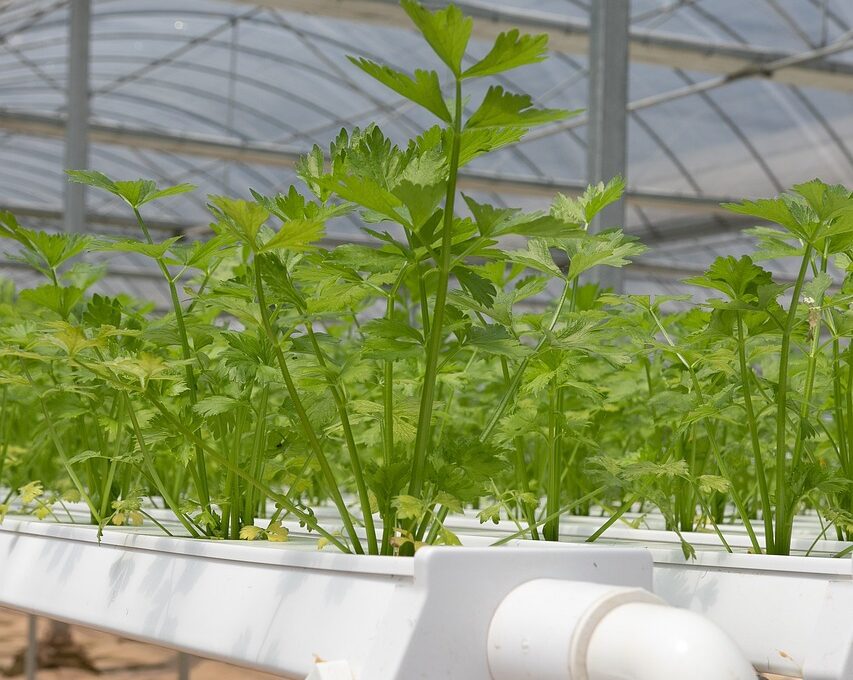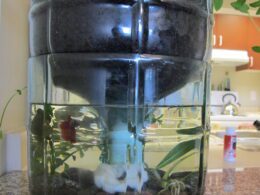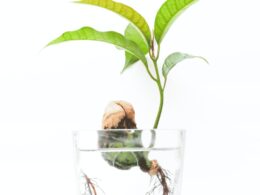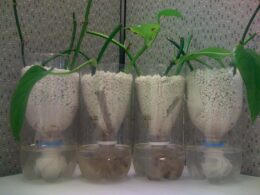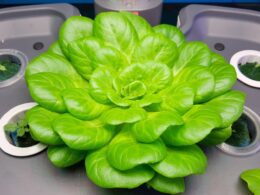If you’re considering using PVC pipes in your hydroponic system, you may be wondering whether they’re safe for your plants and your health. PVC pipes are a common choice for hydroponic growers because they’re affordable, easy to find, and easy to work with. However, they also come with some risks that you should be aware of before you make a decision.
In this article, we’ll explore the potential risks of using PVC pipes in hydroponics and discuss some alternatives that you may want to consider. We’ll also provide tips for using PVC pipes safely, so you can balance convenience with safety in your hydroponic system.
Whether you’re a beginner or an experienced hydroponic grower, it’s important to understand the potential risks of your materials and take steps to minimize them. So, let’s dive in and explore whether PVC pipes are safe for hydroponics.
Understanding the Risks of Using PVC Pipes in Hydroponics
You might be surprised to learn about the potential dangers of using certain materials in your hydroponic system. PVC pipes, for example, have been widely used in hydroponics, but they might not be the safest choice.
PVC toxicity is a concern, which is why you should be aware of the risks associated with using PVC pipes in hydroponics. PVC pipes contain chemicals that can leach into the water and affect the quality of your plants. These chemicals can also be harmful to your health.
PVC pipes are made of polyvinyl chloride, a plastic that contains phthalates and other toxic chemicals. When exposed to heat and water, these chemicals can break down, releasing toxic substances that can harm the environment and your plants.
The environmental impact of using PVC pipes in hydroponics is another concern. The production and disposal of PVC pipes contribute to pollution and waste. PVC is not biodegradable, and it can take hundreds of years to decompose.
It is important to consider the long-term effects of using PVC pipes in your hydroponic system and explore alternative options that are safer for the environment and your health.
Alternatives to PVC Pipes
If you’re searching for eco-friendly and sustainable options for your hydroponic system, there are several alternative materials to consider for your tubing needs.
One popular option is using flexible polyethylene tubing, which is made from recycled materials and is resistant to algae growth and UV damage. This type of tubing is also easy to install and can be cut to the desired length with a simple pair of scissors.
Another alternative material is stainless steel tubing, which is durable and long-lasting. While it may be more expensive than PVC, stainless steel tubing is resistant to corrosion and can withstand extreme temperatures. This makes it a great option for hydroponic systems that require high heat or chemical resistance.
When considering alternative materials, it’s important to also compare the cost. While some materials may be more expensive upfront, they may save you money in the long run due to their durability and resistance to damage. Additionally, choosing eco-friendly and sustainable materials can have a positive impact on the environment and may be worth the investment in the long run.
Ultimately, the choice of material will depend on your specific needs and budget.
Evaluating Your Hydroponic System
Assessing the effectiveness and sustainability of your hydroponic system requires a thorough evaluation. Here are four items to consider when evaluating your hydroponic setup:
-
Material safety: PVC pipes have been used in hydroponics for years, but concerns exist about the leaching of chemicals into the water. Consider alternatives such as food-grade plastic or stainless steel.
-
Energy consumption: Hydroponic systems require electricity to run pumps, lights, and other equipment. Evaluate your energy consumption and consider using energy-efficient equipment.
-
Maintenance techniques: Regular maintenance is essential to keep your hydroponic system running smoothly. Develop a maintenance schedule to ensure that your system is clean and functioning correctly.
-
Environmental impact: Hydroponic systems can be environmentally friendly when designed with sustainability in mind. Consider using renewable energy sources, minimizing waste, and using organic fertilizers.
By evaluating your hydroponic system, you can ensure that it is safe and sustainable. Regular maintenance and consideration of materials and energy consumption can help reduce environmental impact. By incorporating sustainable practices into your hydroponic setup, you can grow healthy plants while minimizing your environmental footprint.
Tips for Using PVC Pipes Safely
One must take precautions when using certain materials in a hydroponic system, and PVC pipes are no exception. Proper maintenance is key to ensuring the safety and longevity of your PVC pipes.
It’s important to regularly check for any cracks or leaks in the pipes, as these can lead to the release of harmful chemicals into your system. Additionally, make sure to clean your pipes regularly to prevent the buildup of harmful bacteria and algae.
Another important consideration when using PVC pipes in hydroponics is ventilation. PVC pipes can release toxic chemicals when exposed to high temperatures, so it’s important to ensure adequate ventilation in your grow space. This can be achieved by installing fans or other ventilation systems to circulate the air and prevent the buildup of harmful chemicals.
Choosing the right adhesives is also key to using PVC pipes safely in hydroponics. When selecting adhesives, make sure to choose ones that are specifically designed for use with PVC pipes and are safe for use in a hydroponic system. Using the wrong adhesive can result in the release of harmful chemicals into your system, which can be harmful to both your plants and your health.
By following these tips, you can safely and effectively use PVC pipes in your hydroponic system.
Conclusion: Balancing Safety and Convenience in Hydroponics
To ensure a successful and healthy hydroponic system, it’s important for you to strike a balance between safety and convenience. While PVC pipes are a popular choice for hydroponics due to their cost effectiveness and ease of use, it’s important to consider their potential safety hazards and environmental impact. Here are some tips to help you find that balance:
- Choose PVC pipes that are labeled as food safe and avoid using pipes that have been treated with chemicals or additives.
- Avoid using PVC pipes that have been exposed to high temperatures as they may release harmful chemicals into your hydroponic system.
Regularly inspect your PVC pipes for cracks, leaks, or signs of wear and tear that may compromise the safety and effectiveness of your hydroponic system.
Consider using alternative materials like stainless steel or food-grade plastic if you’re concerned about the safety of PVC pipes.
Dispose of your PVC pipes responsibly and consider recycling them to minimize their environmental impact.
While PVC pipes can be a cost-effective and convenient option for hydroponics, it’s important to prioritize safety and environmental impact when choosing materials for your system. By following these tips and being mindful of the potential hazards and impact of PVC pipes, you can create a healthy and successful hydroponic system that is both safe and sustainable.
Frequently Asked Questions
How do PVC pipes compare to other pipe materials in terms of cost and availability?
When it comes to cost effectiveness, PVC pipes are a popular choice for many industries, including hydroponics. In comparison to other pipe materials, PVC pipes are generally more affordable and readily available.
This availability analysis makes PVC pipes a practical option for those looking to save money on their hydroponic setup. While there are concerns about the safety of using PVC pipes in hydroponics, it’s important to note that the focus of this discussion is solely on cost effectiveness and availability.
It’s always important to prioritize safety when working with any materials, so be sure to do your research and make informed decisions.
Can PVC pipes be used for hydroponic systems that grow edible plants or vegetables?
Looking to maximize your hydroponic yield? PVC pipes can be a great option for your setup, as they’re durable and cost-effective. Many hydroponic gardeners have successfully grown a variety of edible plants and vegetables using PVC pipes. They offer the added benefit of being able to easily customize the size and shape of the pipes to fit your specific needs.
While there’s been some concern about the safety of PVC pipes, especially when it comes to food production, proper installation and maintenance can minimize any potential risks. As long as you take the necessary precautions and use high-quality PVC pipes, you can enjoy a successful and safe hydroponic gardening experience.
Are there any long-term health risks associated with using PVC pipes in hydroponics?
When it comes to using PVC pipes in hydroponic systems, there are potential hazards that you should be aware of. PVC pipes can leach chemicals into the water, which can then be absorbed by the plants. This can have long-term health risks for both you and the environment.
However, there are alternatives to PVC pipes, such as using food-safe plastic or even bamboo. It’s important to consider the environmental impact and sustainability of your hydroponic system as a whole. So, while PVC pipes may be a common choice, it’s worth exploring other options to ensure the safety and health of your plants and yourself.
How can I dispose of PVC pipes properly once they are no longer needed in my hydroponic system?
When it comes to disposing of PVC pipes used in hydroponics, it’s important to follow proper disposal methods to minimize the environmental impact.
PVC pipes are not biodegradable and can release toxic chemicals when burned, so it’s best to avoid throwing them in the trash or burning them.
Instead, consider recycling them at a facility that accepts PVC or finding a specialized recycling program for PVC pipes.
Another option is to repurpose them for other projects or donate them to someone who could use them.
By taking the time to dispose of PVC pipes correctly, you can ensure that they don’t contribute to environmental pollution while reducing your own personal impact.
Can PVC pipes be recycled and reused in hydroponic systems?
Looking for recycling options for your PVC pipes used in hydroponic systems? It’s important to consider the environmental impact of disposing of these materials.
Fortunately, PVC pipes can be recycled and reused in hydroponic systems, reducing waste and conserving resources. By properly disposing of your PVC pipes, you can help minimize the negative impact on the environment and ensure a sustainable future for your hydroponic garden.
Conclusion
So, is PVC pipe safe for hydroponics? It’s a question that many hydroponic growers ask, and the answer is not straightforward.
While PVC pipes can be a convenient and affordable option for building hydroponic systems, they can also pose risks to both the plants and the grower.
In conclusion, it’s important to weigh the benefits and risks of using PVC pipes in your hydroponic system. If you do decide to use them, make sure to follow safety guidelines and take precautions to minimize potential hazards.
Ultimately, the key to successful and safe hydroponics is to stay informed, stay vigilant, and make informed choices about the materials you use in your system.





